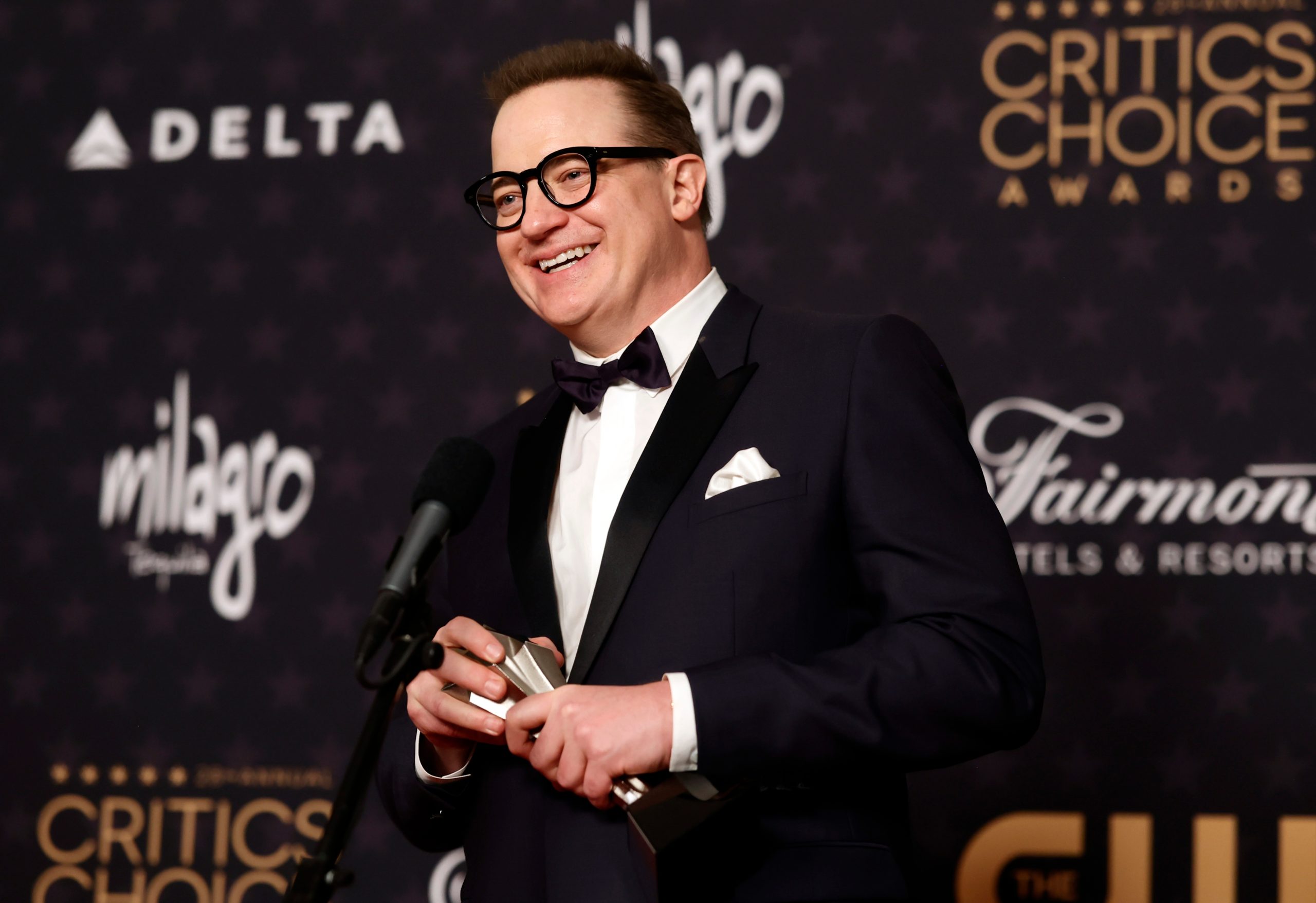
The awards season is in full swing and will culminate with the prestigious Academy Awards in March. Brendan Fraser’s “comeback” has been making headlines and capturing the hearts of the people, but as Matthew Walsh argues, Hollywood loves comebacks, both on and off screen.
There was a video that quickly made the rounds after last month’s Critics Choice Awards ceremony. It caught a moment off-stage, after the prizes had been handed out and when huddles were formed around those with trophies in hand.
One such actor, on seeing another come into the room, clutching his own trophy, quickly broke from the group to dart over and offer his heartfelt congratulations to his fellow winner.
It was a sweet moment that captured that rare thing in Hollywood, genuine warmth shared between friends in an environment usually defined by insincerity and faux friendships.
The video’s greater appeal lay in the even more unlikely story it held at its centre – the fact that the actors sharing the embrace and clasping their shiny gongs were Brendan Fraser and Ke Huy Quan, having won awards for their roles in The Whale and Everything Everywhere All At Once respectively.
There is SO much love for #BrendanFraser in the house tonight.
Here’s the moment Ke Huy Quan spotted him in the Winners Lounge and sprinted over to congratulate him. pic.twitter.com/QWhdX3BiU1
— Critics Choice Awards (@CriticsChoice) January 16, 2023
From seemingly nowhere, George of the Jungle and the kid from The Goonies had managed to scale the highest echelons of Hollywood society and position themselves as firm frontrunners for Oscars glory.
What their success represents is the ultimate Hollywood storytelling trope: the dramatic comeback. And they’re not alone.
Dotted throughout cinematic history are tales of wildly unlikely acting returns that place the forgotten back into the spotlight. But why do their stories seem to be so celebrated? And why are they so commonplace?
To understand that you have to go to the very heart of what Hollywood loves to believe about itself. That they are the ultimate storytellers and the pre-eminent dream makers. For what greater story is there than the rise, fall and all-conquering rise again of the comeback tale? And what greater dream than the one where you wake up with an Oscar in your hand?
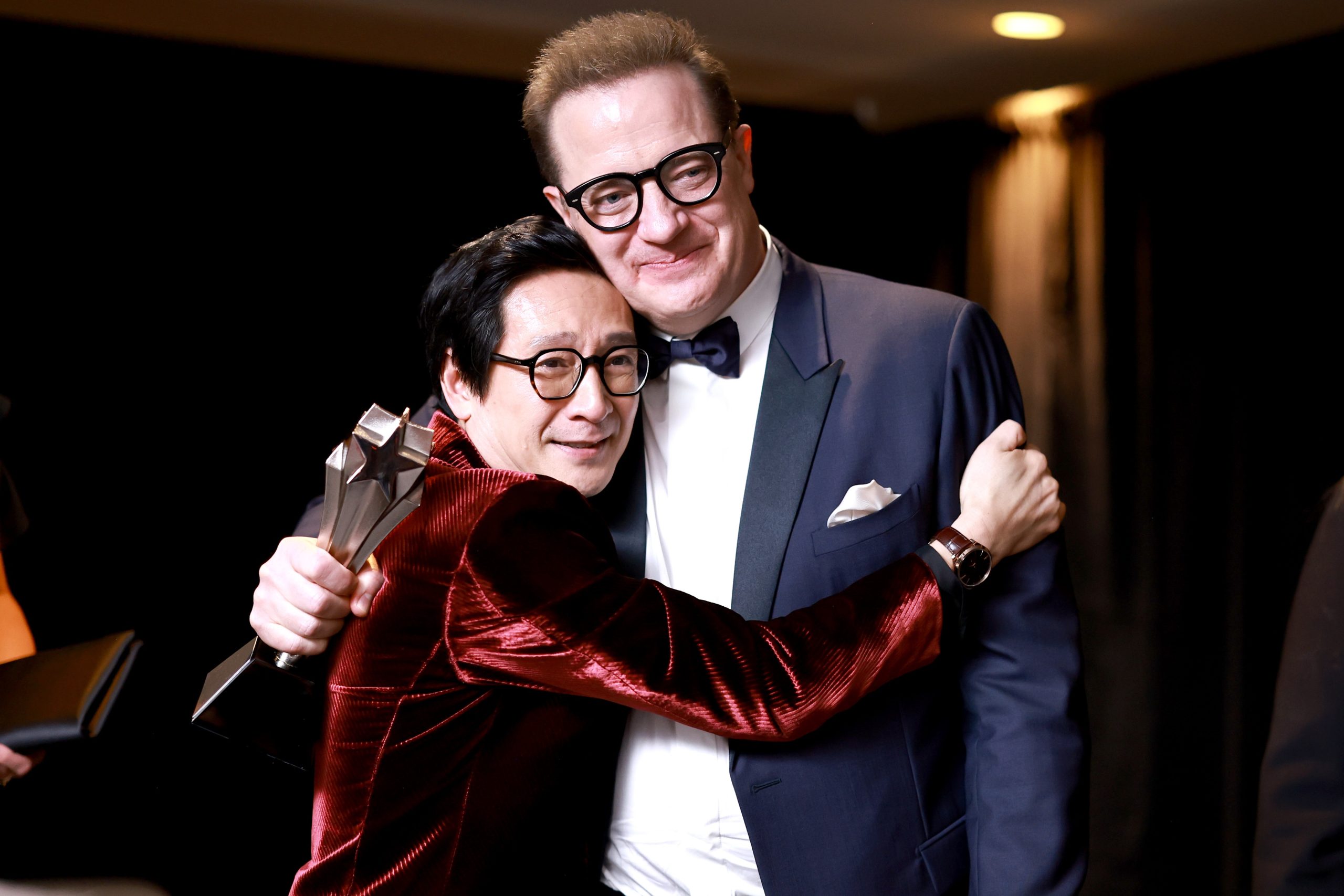
Ke Huy Quan and Brendan Fraser attend the 28th Annual Critics Choice Awards at Fairmont Century Plaza on January 15, 2023 in Los Angeles, California. (Photo by Matt Winkelmeyer/Getty Images for Critics Choice Association)
It’s the hero’s journey played out in real life for all to see. An actor forced to battle his flaws, slay their all-too-public demons and return for a triumphant third act.
Take, for example, the sports movie. A genre so predicated on the underdog rising to snatch an unlikely victory from the jaws of defeat that we know the ending before we’ve even sat down. So powerful is the template that 1976’s Rocky mirrored its own underdog tale when it won public hearts and Academy votes in equal measure to beat off competition from Taxi Driver, Network and All the President’s Men to collect the Best Picture Oscar.
These underdog driven stories are long-ingrained within us. They date back to tales of David v. Goliath and the 300 men of Sparta feeling the might of Persia. But they only tell half the story. To truly echo the comeback narrative, we need redemption: an actor returning from the cold, having plummeted close to rock bottom and readying his Act 3 revival that ties the whole plot together.

Rocky (1976). Credit: MGM
The awards season of 2009 had just the thing.
In the late 1980’s, Mickey Rourke had built up a strong reputation on the back of eye-catching performances in dramas such as 9 ½ Weeks, Angel Heart and Barfly before his career wildly changed gears. A series of flops, culminating in receiving a ‘Razzie’ for worst actor, saw him swap the screen for the boxing ring before public battles with alcohol, narcotics and mental health cast him out of Hollywood for good.
Or so it had seemed. Following a return to mainstream films with Sin City in 2005, Rourke was cast in Darren Aronofsky’s The Wrestler, lending a layer of authenticity to the film that would see him collect BAFTA and Golden Globe awards and receive his first Oscar nomination. (Aronofsky, who is quickly rivalling Tarantino for turning around actors’ fortunes, is also the man behind Fraser’s own renaissance with The Whale.)
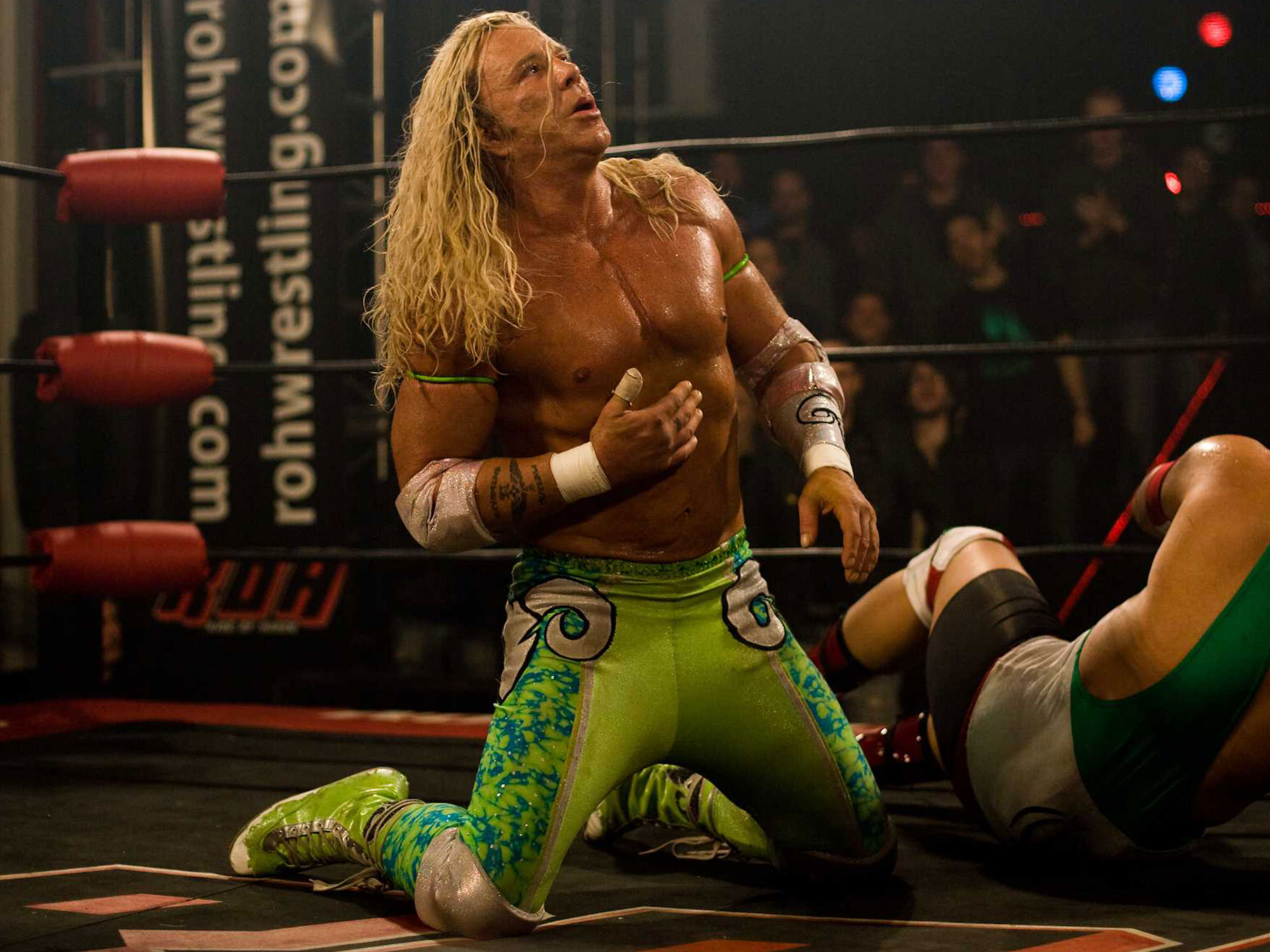
Mickey Rourke in The Wrestler. Credit: Fox Searchlight Pictures
A similar, if less dramatic, redemptive tale was being spun four years later.
When two plucky young friends wowed Hollywood with their screenplay about a troubled maths genius in Good Will Hunting, Matt Damon and Ben Affleck were transformed into Oscar winners and household names. Offers were extended, A-list status secured and Affleck saw his leading man credentials cemented with roles in epics Armageddon and Pearl Harbor. Act One complete.
And then, in 2003, Act Two arrived with a bang. Suddenly, the public had grown tired of all things ‘Bennifer’ (a slightly snarky nickname the press gave to Affleck and girlfriend Jennifer Lopez) and Affleck’s career skidded violently towards a reputational nadir with back-to-back flops that became instant shorthand for failure, Daredevil and Gigli.
Returning to the behind-the-camera work that earned him Oscar success, Affleck took on directing duties for his third act revival and navigated his way back to the podium with 2012s Best Picture, Argo.
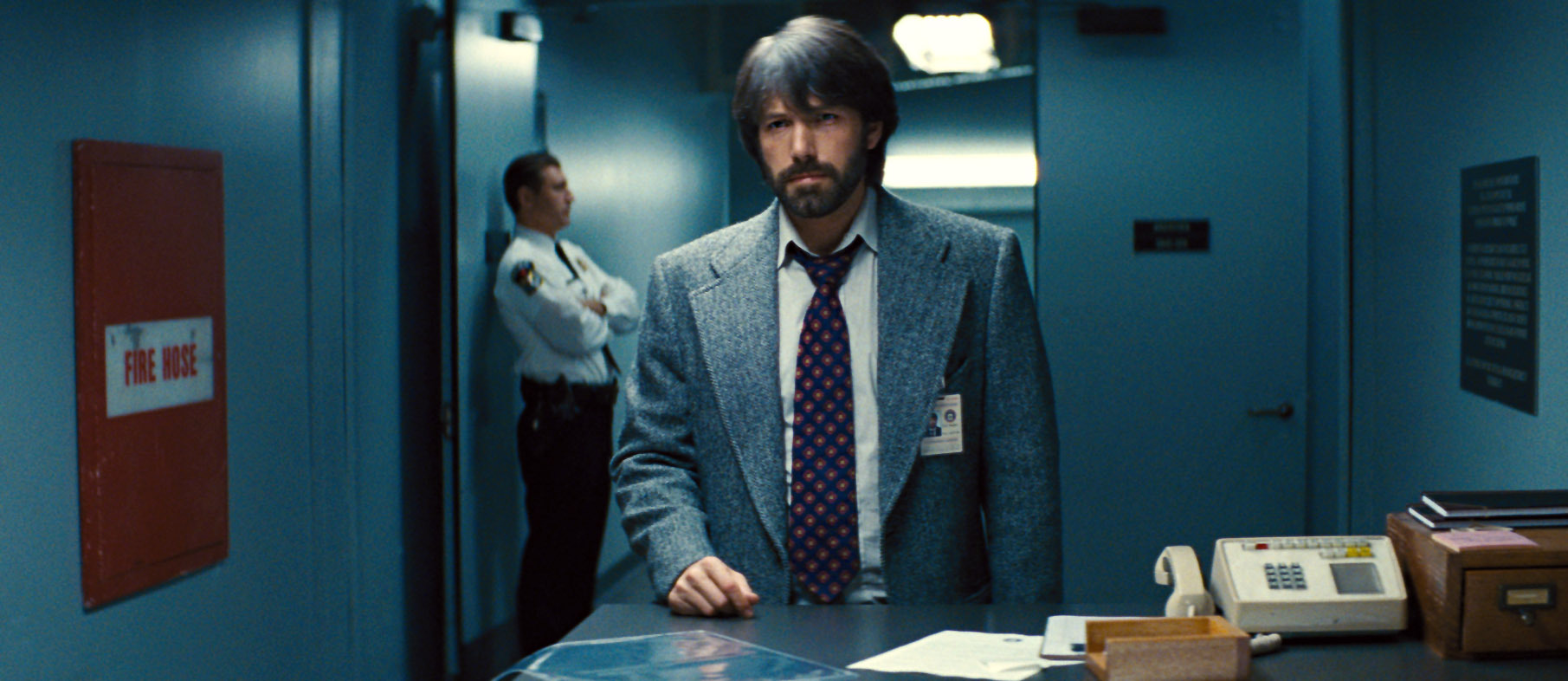
BEN AFFLECK as Tony Mendez in “ARGO,” a presentation of Warner Bros. Pictures in association with GK Films, to be distributed by Warner Bros. Pictures.
These punchline-to-plaudits tales are far from unique – just ask Michael Keaton or John Travolta – and perhaps unsurprisingly so. We have been sold the story of actors as heroes, rooted for them on the biggest screens imaginable and followed their journeys off it. The groundswell of public support is just as strong as the industry’s.
Remember how eagerly we fell for the McConaissance? That period of unexpectedly high quality turns from the original himbo himself, Matthew McConaughey? He was the shirtless guy, the southern-drawled stoner who can add some homely charm to your new rom-com, just don’t expect it to come with critic-proof credibility. His hard-fought career relaunch and subsequent emergence as McConaughey 2.0 caught the imagination of the masses on his way to awards glory.
It’s not solely the reserve of individuals either. There’s a sense of nostalgia-tinted redemption in legacy sequels too, as last year’s box office proved. One of last year’s biggest releases, Top Gun: Maverick, had to overcome its own battles. The original had become a byword for overblown 80’s action, complete with childish sniggering at homoerotic (not so) undertones and was an unlikely source of inspiration for a hefty financial pay-off a quarter of a century later.
There was success too for Jackass Forever, a franchise whose MTV-endorsed low-brow machismo was seen to be out of step with current comedy nuances, left behind in the noughties with trucker caps and The O.C. But Jackass returned to a well-deserved critical and commercial acclaim in 2022.
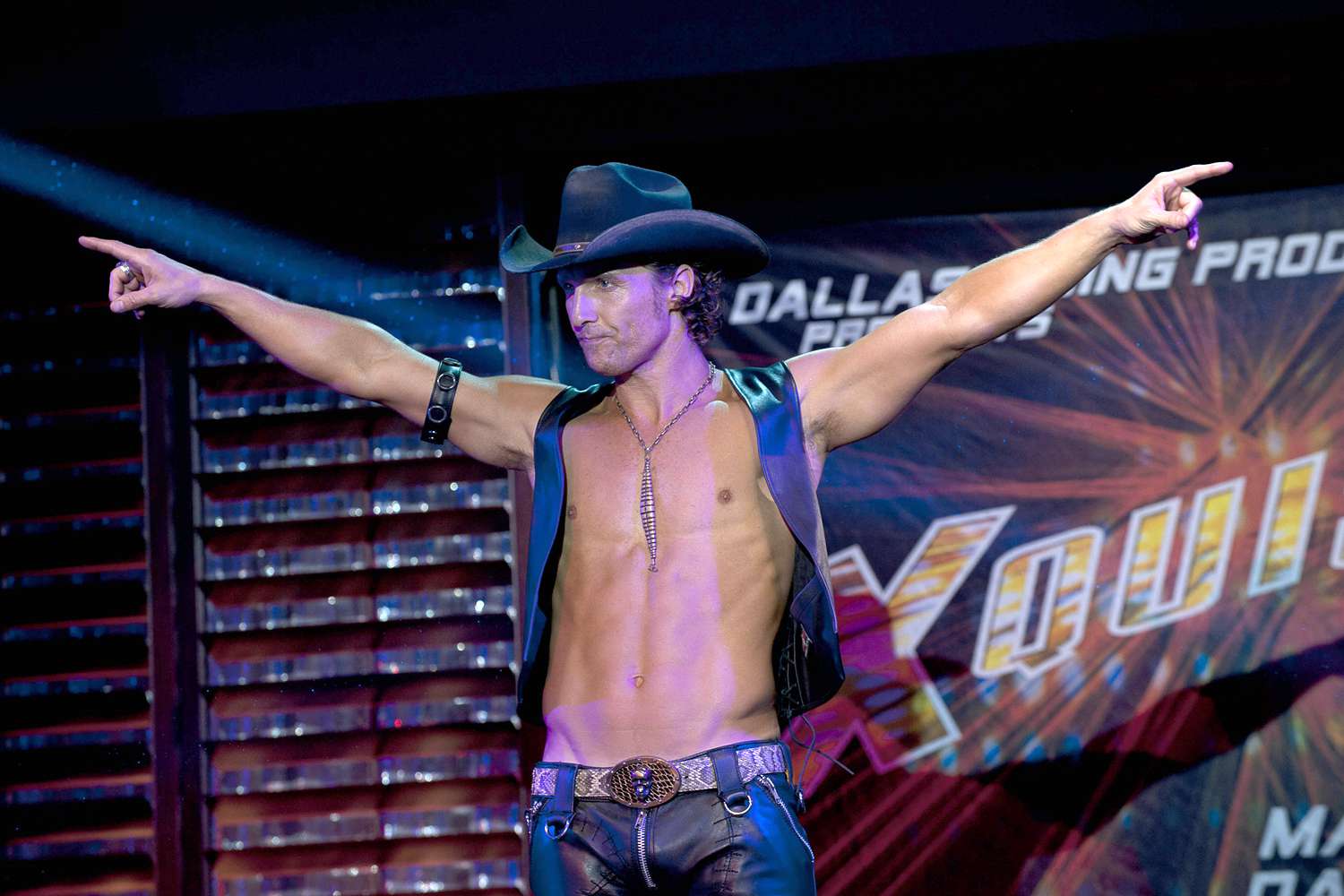
Matthew McConaughye in Magic Mike. Credit: Warner Bros Pictures
So what now for the latest comeback kings of Hollywood? If audiences and industry insiders are as attuned to the three act structure as they seem to be, then Brendan Fraser and Ke Huy Quan may have to go off-script soon to maintain momentum, for there is no fourth act in this structure. Perhaps they can instead cling to Jean-Luc Godard’s words, that a story should have a beginning, a middle and an end – not necessarily in that order.
And there’s plenty to believe that this could in fact be the beginning of theirs.
